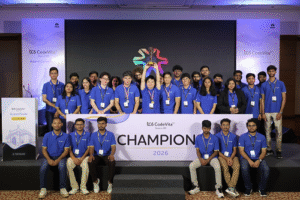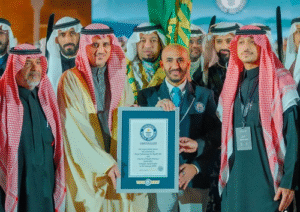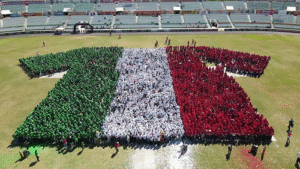Badruddin Tyabji (1844–1906) holds the distinction of being the first Muslim President of the Indian National Congress (INC), a position he held during the Congress session of 1887 in Madras (now Chennai). His election as president of the INC was a significant milestone, not only in the history of the party but also in the broader context of India’s struggle for independence.
Birth: Badruddin Tyabji was born on October 10, 1844, in Bombay (now Mumbai) to a prominent Muslim family with strong ties to social reform and education. His family had a rich tradition of intellectualism and social activism.
Education: Tyabji was an academically gifted child. He attended Elphinstone College in Bombay, where he developed an interest in both law and literature. He went on to study law at Lincoln’s Inn in London, one of the most prestigious law schools in the United Kingdom.
Legal Career: After being called to the bar in London, Tyabji returned to India and became a successful lawyer. He practiced law in Bombay, gaining a reputation as a sharp and capable lawyer. His legal career also marked his increasing involvement in public affairs.
Social Reformer: Tyabji was deeply involved in social reforms aimed at improving the lives of Muslims and other underprivileged communities in India. He advocated for education, women’s rights, and reforms within the Muslim community, particularly focusing on the importance of modern education.
Educational Advocate: He was instrumental in the founding of Muslim educational institutions and supported the idea of modern education for all, regardless of religion or social background. He also promoted the idea that Indians should have a greater role in their own governance and urged reforms in the British colonial education system.
Public Service: Badruddin Tyabji held several important public positions, including being a member of the Bombay Legislative Council and later the first Muslim to serve as a judge in the Bombay High Court. His prominence in these positions reflected his commitment to social justice and public service.
Early Days of the Congress: The Indian National Congress was founded in 1885 by A.O. Hume and a group of Indian leaders, with the goal of representing Indian interests within the framework of the British colonial system. Initially, the INC was more of a forum for petitioning the British government for reforms rather than a full-fledged political party aiming for independence. It was during the 1880s that the INC began to gain traction among a wider section of Indian society, including Hindus, Muslims, and people from various backgrounds.
First Muslim President: In 1887, Badruddin Tyabji made history by becoming the first Muslim to preside over the Indian National Congress. His election as president of the INC was symbolic of the growing inclusivity within the Congress, which sought to bring together Indians from all communities to demand rights and reforms under British rule.
Congress Session in Madras: The session at which Tyabji presided was held in Madras (now Chennai). Tyabji’s leadership was highly respected, and his appointment marked a significant moment for the Congress, as it reflected the party’s commitment to secularism and inclusivity, aiming to represent all communities, not just Hindus, in the fight for Indian rights.
Commitment to Hindu-Muslim Unity: Tyabji’s presidency also symbolized the unity of both Hindus and Muslims in the Indian National Congress. At a time when communal differences were beginning to emerge, Tyabji’s leadership represented the idea of a united India where all communities could work together for their shared rights and independence.
Advocacy for Moderate Reforms: Tyabji was considered a moderate leader within the INC, advocating for gradual constitutional reforms rather than immediate radical changes. He believed in dialogue with the British government and the importance of negotiation to achieve Indian political goals.
Fostering Unity Among Indians: Tyabji’s presidency was a part of the broader political evolution of the Congress. His work was critical in fostering unity among diverse sections of Indian society, including Muslims, Hindus, and other minorities, who began to recognize the importance of working together to achieve political and social reforms in India.
Muslim Involvement in National Politics: Tyabji’s election as the first Muslim president also played a key role in encouraging Muslim participation in the Indian National Congress and in the wider Indian independence movement. His leadership was a precursor to the increasing political activism of Muslims in India, which would later manifest in the rise of prominent Muslim leaders within the INC and other nationalist organizations.
National Unity and Secularism: Tyabji was an advocate for a secular India, where all religions and communities could coexist peacefully and work together towards independence. His leadership promoted the idea that both Hindus and Muslims had an equal stake in the future of India and that they should jointly work towards achieving greater self-rule and independence.
Political and Social Contributions: After his presidency, Tyabji continued to be active in public service and education. He was one of the founders of the Indian National Congress’s Muslim League faction, which aimed to address the concerns of Muslims within the broader Indian nationalist framework.
Health and Decline: Later in life, Badruddin Tyabji’s health began to decline, and he faced personal and political challenges. He passed away on February 23, 1906, at the age of 61. His death marked the end of a significant era in the history of the Indian National Congress and the Indian independence movement.
Legacy: Badruddin Tyabji is remembered for his pioneering leadership as the first Muslim president of the Indian National Congress and his tireless efforts towards social reform, education, and secularism. His role in promoting Hindu-Muslim unity, his contributions to the Indian independence struggle, and his advocacy for moderate political reforms have left a lasting legacy in the history of India.
Badruddin Tyabji was the first Muslim President of the Indian National Congress, elected in 1887. He played a crucial role in promoting unity among Hindus and Muslims within the Congress, fostering the idea of a secular and unified India. A prominent lawyer and social reformer, Tyabji was a key figure in education, politics, and the early stages of the Indian independence movement. His leadership symbolized the Congress’s commitment to representing all communities and their shared political goals under British colonial rule.







